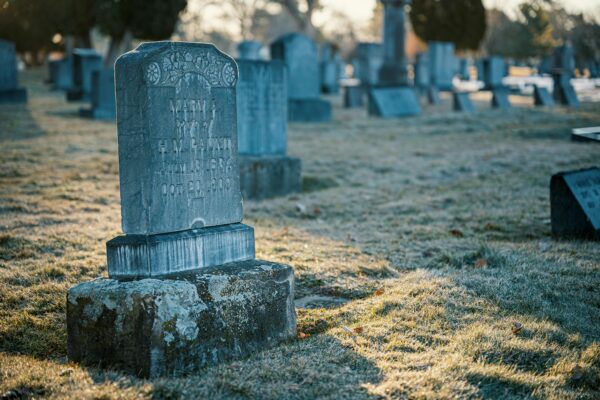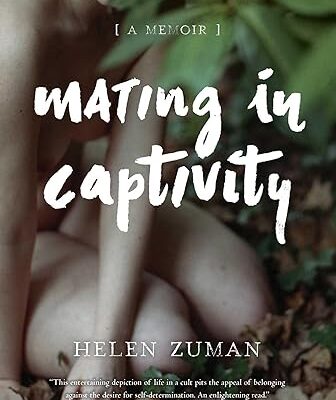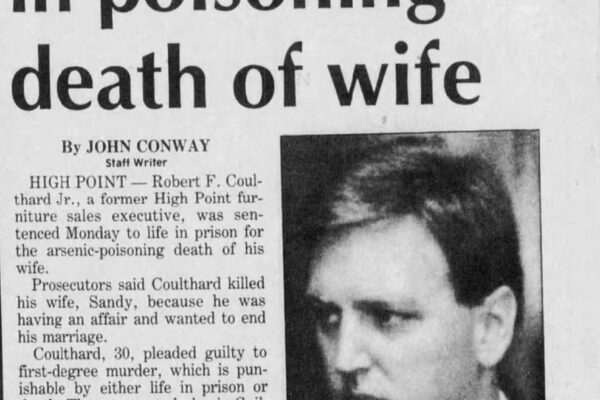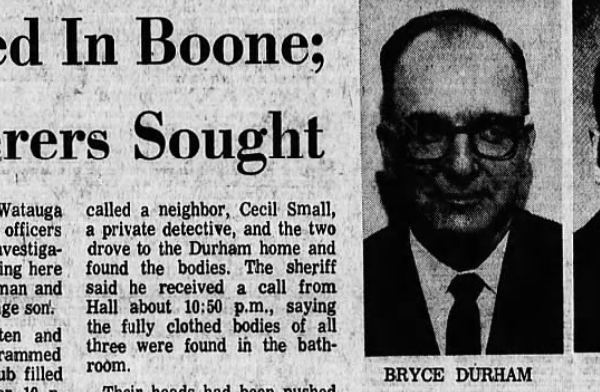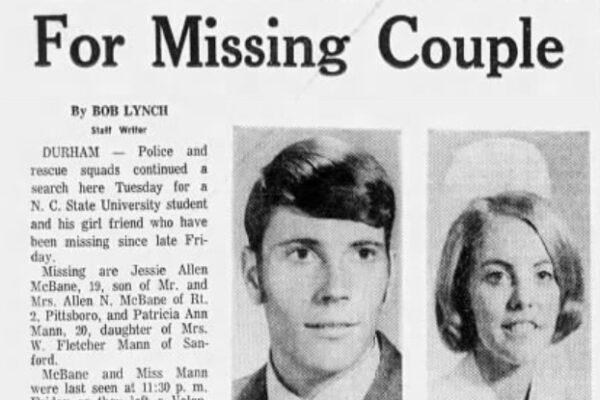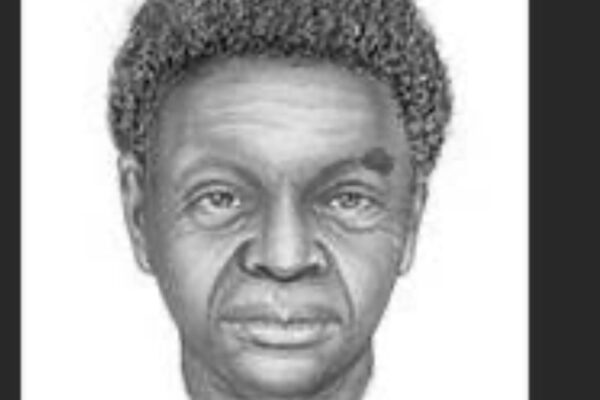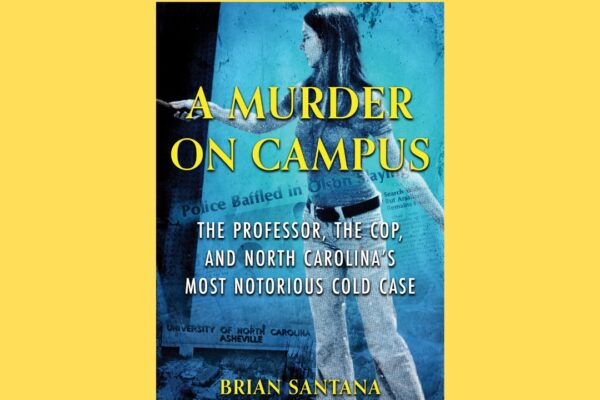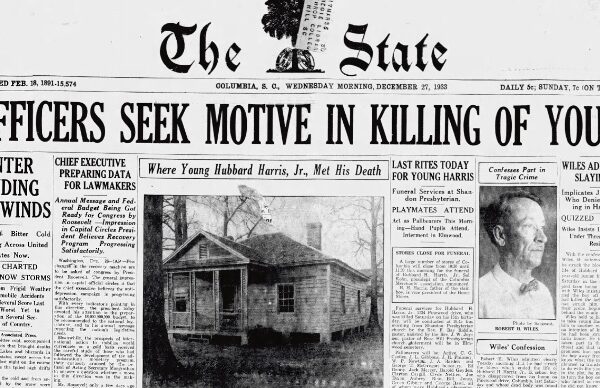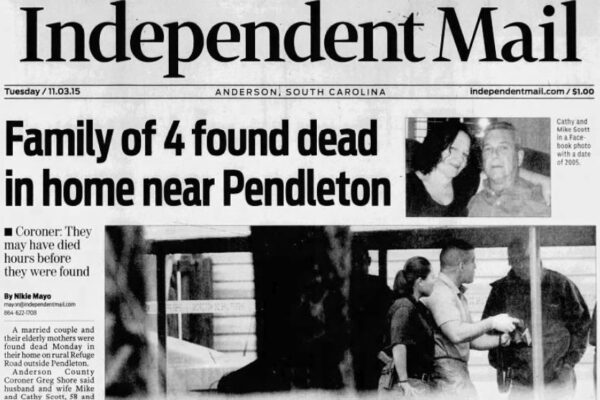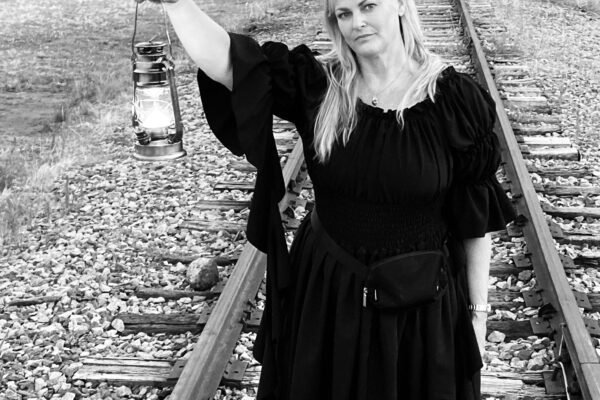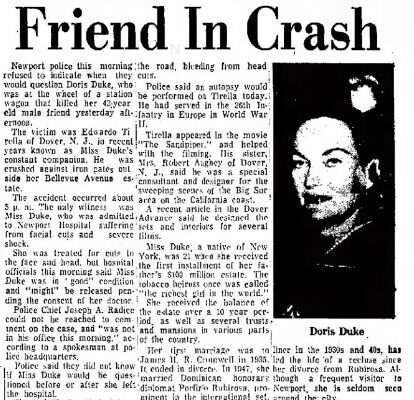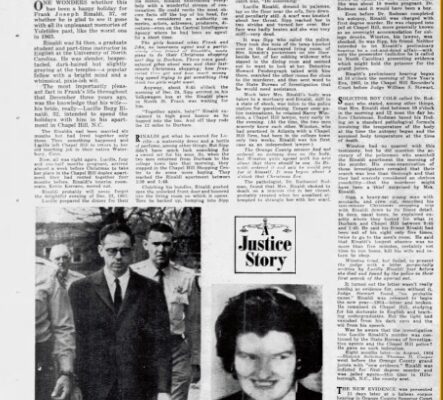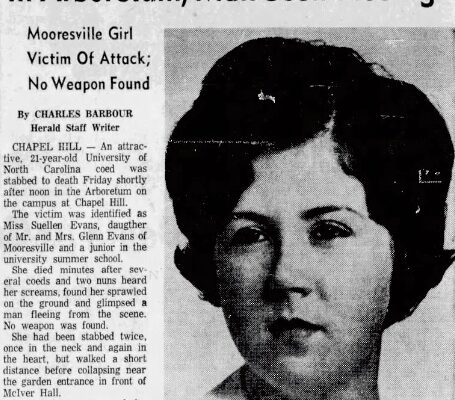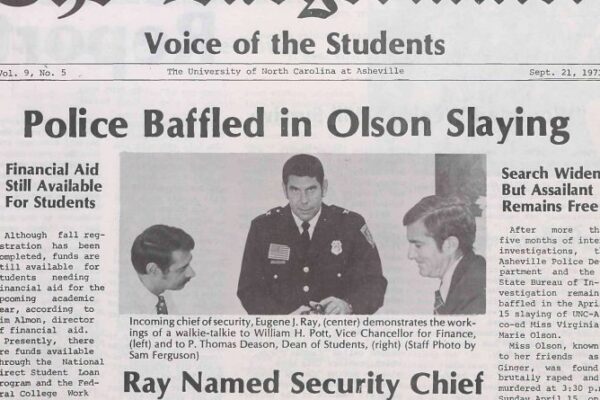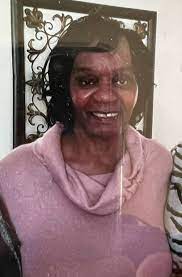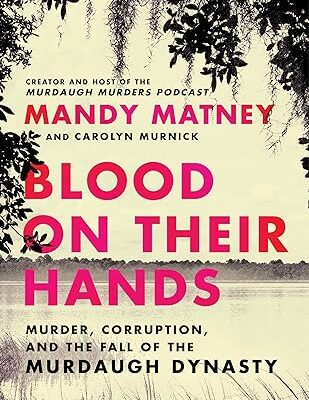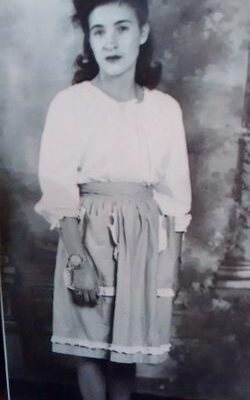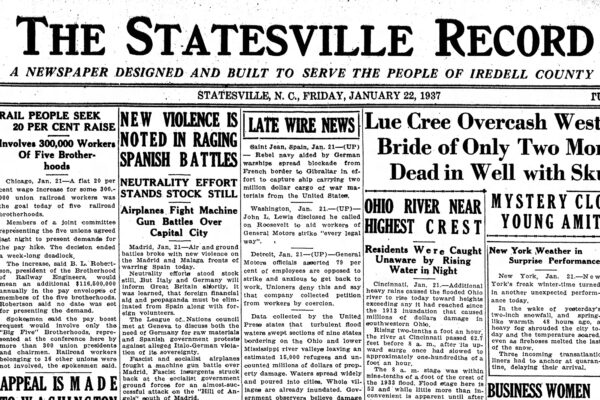True crime has always been a popular genre in nonfiction books, and with the rise of independent presses and self-publishing options, the publication of true crime books has only risen in recent years. Throw in a murder trial that riveted people nationwide, whether they were familiar with the region or not, and you’ll find more ways to read about a case than you know what to do with. This is exactly what has happened in the case of Alex Murdaugh, the South Carolina attorney who was convicted of murdering his youngest son and wife in 2023. Not only was he convicted of those murders, but he was also embroiled in several financial crimes throughout most of his career, and every other week he seems to be back in the headlines. Today I want to talk about a few things I learned after reading the book, “The Devil at His Elbow: Alex Murdaugh and the Fall of a Southern Dynasty,” which I couldn’t put down, by the way. You might be surprised by a few of these things as well.
I recently had the chance to read “The Devil at His Elbow: Alex Murdaugh and the Fall of a Southern Dynasty.” I’ll be honest, when I first heard journalist Valerie Bauerlein had released this book, I thought, does there really need to be another book about this family out there? In Episode 72, I shared my review of “Blood on Their Hands: Murder Corruption and the Fall of the Murdaugh Dynasty.” That book was a little bit different, because while it was a work of nonfiction, it was also more of a memoir about journalist Mandy Matney and her life leading up to uncovering the corruption in the Murdaugh family, including working at The Island Packet in Hilton Head, South Carolina. Bauerlein’s book is different, and it became an instant New York Times bestseller. While it reads like a novel, it also dives deep into the lineage of the Murdaugh family, which began in South Carolina in the late 1800s. One of the passages that hooked me from the beginning was this one:
Sudden exits had haunted the Murdaugh’s for more than a century: suspicious accidents, unusual deaths, deaths that were faked, deaths rumored to be murders, death during childbirth, death on a battlefield, death during a quiet night at home, death by musket and shotgun and rifle, death by drowning, death on a dark road, death by stairs. Long before Alex was born, lethal violence was woven into his family’s story, along with chicanery and infidelity and enough hubris for several Greek tragedies.
Valerie Bauerlein is a national reporter for The Wall Street Journal who writes about small-town America and Southern politics, economics, and culture. She has covered the South her entire career, including nineteen years at the Journal and four years at The State in Columbia, South Carolina. Bauerlein is a native of North Carolina and graduated from Duke University. She lives in Raleigh, North Carolina, with her husband and their two children.
I will add that Bauerlein covered the Murdaugh family for several years, including reporting on Alex’s financial crimes and attending his murder trial daily, so the book is based on hundreds of hours of interviews with the people involved.
The book starts out with a listing of the main characters discussed, which I appreciated. Then the opening chapters discuss the end of Alex Murdaugh’s trial, and the reader then gets taken back in time to see where the dynasty began, with the life of Randolph Murdaugh Senior, who was born in 1887.
I’ve often wondered why the Murdaugh family wanted to live in rural Hampton County for so many years. But the book does a good job of explaining how the Murdaughs, who resided in the upper echelon of Hampton County, likely wouldn’t have had as much power and prestige in other parts of the state. Bauerlein also described how and why Hampton County was so ripe for personal injury lawsuits. She writes:
“The Murdaughs shied away from taking on clients who had been injured inside the town’s plastics factory, long the leading toxic emitter in the state. The family didn’t like to sue companies close to home. The preference was to go after big out-of-town corporations.”
Describing Alex, she says: “He was the kind of guy who could, in the course of a day, score some pills, cheat on his long-suffering wife, fix three different court cases in three different counties, head to Hampton’s Little League fields to coach one of his son’s teams, and then host the afterparty for players’ families.
There were some parts of the book that I already knew a lot about, including the chapters on Mallory Beach’s death, the boat crash at Archer’s Creek, and Stephen Smith’s still-unsolved murder. That’s probably because I’ve watched all the documentaries on the Murdaugh family up to this point. There is a very chilling quote in Chapter Thirty-Six, where Anthony Cook’s mother Beverly says she woke up in the middle of the night with Mallory’s voice in her head. The deceased 19-year-old was saying:
They all think the dark, black waters took me. But I need them to see . . . the dark black secrets needed me. To set them all free . . . it took me.
I also knew a good bit about the investigation into Alex Murdaugh’s financial crimes. The book shares details about the personal injury clients Alex stole from, and a lot of the reporting covered things I hadn’t heard before, including details from the Murdaugh housekeeper Gloria Satterfield’s death. But I did not follow the actual trial of Maggie and Paul’s murders very closely, so I was surprised to learn several different incriminating details from that.
What I want to discuss today is “Five New Things I Learned About the Murdaugh Family” after reading “The Devil at His Elbow.” A warning if you haven’t read the book that this episode may contain some spoilers, so please be advised on that if you’re interested in checking out the book.
- The Murdaugh’s home before Moselle, located on Holly Street in Hampton, South Carolina, caught fire in July 2009.
In 2009, their home on Holly Street caught fire while the family was out of town at their home on Edisto Island. Firefighters were able to extinguish it quickly, but it appeared someone had poured diesel fuel throughout the house and then set fire to a backdoor floor mat. An article that ran in The Bluffton News the next day read:
Local and state police are still searching for a suspect in connection with an apparent arson attempt at the home of a local attorney.
Firefighters responded to a reported structure fire at the home of Alex Murdaugh at 515 Holly St. Extension around 7:30 Friday morning. While the fire was quickly distinguished, evidence at the scene has prompted an arson investigation, said Hampton Police Chief Perry McAlhaney.
“We suspect that sometime Thursday night or Friday morning someone spread some kind of accelerant around the house and tried to set it on fire from the back door,” said McAlhaney. “Luckily, for some reason it didn’t spread through the house and the only thing that burned was the floor mat.”
The family filed charges against a contractor who had done some work for the Murdaughs, but he never stood trial. After the fire, Alex refinanced the Holly Street house with a no-money down loan and valued the house at a half a million dollars, which was a lot more than its previous value. I have to wonder if this arson, that conveniently occurred while the Murdaughs were away at their beach house, was another attempt by Murdaugh to work the system and receive an infusion of cash from an insurance settlement.
2. The Murdaugh Family Sued a Railroad after Randolph Murdaugh Sr. staged an accident and caused his own death.
Alex Murdaugh’s great-grandfather, Randolph Murdaugh Sr., allegedly took his life by driving onto the railroad tracks at a desolate crossing near a country cemetery in the early morning hours of July 19, 1940. He was 53 years old and had been in bad health for years with heart and kidney troubles. He was the first member of the family to attend law school at the University of South Carolina and elected the Fourteenth Circuit’s solicitor. He was the founder of the Murdaugh law firm.
An article that ran in The State newspaper the day after his death read:
Randolph Murdaugh, Sr., one of the most-respected citizens of Hampton County, was killed instantly near Varnville early this morning when a train and his car collided at a crossing of the Charleston and Western Carolina Railway Company. He was returning home after visiting a friend.
Bauerlein’s book expands on that night, writing that Randolph Senior was leaving a poker game at a friend’s house, which included a lot of whiskey consumption.
The railroad crossing didn’t have any lights or signal arms because it wasn’t a main crossing and was out in a remote part of the county. He knew the train schedule. He drove up onto the middle of the tracks, leaned out his open car window, and waved into the train’s headlight. The train engineer saw him, but it was too late to do anything but strike the car. He would later recount that it did not look like a distressed wave, but a friendly one. Randolph Senior’s body was found beside the tracks with a broken back and crushed skull.
His death was ruled an accident, and the family sued the railroad for $100,000, which would be about $2 million today. However, people in town talked. They knew Randolph Senior would not have gone over that railroad crossing on his usual route home. How was it an accident if the engineer saw him accelerating onto the tracks at the same time the train approached? Randolph Senior knew the railroad budgeted money for settlements as part of their operating expenses. The money the family won helped Randolph Senior’s son, Buster Murdaugh, who was then 25, establish his place in the legal community of Hampton and the cash to get the family dynasty started.
Here’s the third thing I learned about the Murdaugh family while reading Valerie Bauerlein’s book.
3. The Murdaughs were involved in another boat crash.
In 1998, the Murdaugh family was also involved in another boat crash. Alex’s younger brother, John Marvin, had thrown a party out on a family property called Murdaugh Island, and the guests grabbed their beer and headed out in a boat on the Broad River. John Marvin was with friends in another boat. While the first boat on a stretch known as Hazzard Creek, the boat hit something under the water, got stuck for a moment, and then continued on. Within a few seconds, the passengers realized someone had gone overboard. They found the passenger in knee-deep water, bleeding from his face. The group brought the injured man back on board and headed to a nearby marina.
They saw John Marvin in his boat, and he headed to the marina with them. Despite two boats full of people who had been drinking on the water, and one person who was later determined to have been run over by a boat, an officer with the Department of Natural Resources drove John Marvin and his guests back to Murdaugh Island. Allegedly, John Marvin coached the group on what to say, and it was more than a month before the victim had recovered well enough to talk with an agent. The driver of the boat was only fined for having two few life preservers on the boat.
4. The Murdaugh Men Had a Long History of Stepping Out On Their Wives and Controlling Them Financially.
Randolph Senior’s first wife, Etta Causey Harvey, died of sepsis just a few weeks after giving birth to their second son. A year later he married Estelle Marvin Murdaugh, a distant relative. But when she was 46, Estelle was admitted to a sanitorium in Walterboro. She died six months later, and her cause of death was listed as preeclampsia. She also had arthritis and pneumatic fever. It was not clear if she was pregnant at the time of her death, though, as it seems to have been kept under wraps if she was. Four days after Estelle died, Randolph Senior married his third wife, Mary J. Taylor Hoffman, a woman fifteen years his junior and the daughter of a state senator. They had apparently been an item for some time.
Randolph “Buster” Murdaugh, Alex’s grandfather, was married to a woman named Gladys, who he met in college, but he was also well known for stepping out on her. In fact, he fathered a son with another woman, named Rutheven Vaux, who was married to a local plantation owner. Even after Rutheven Vaux visited the Murdaugh home with her son, Gladys refused to allow the boys to meet and said often, “Murdaughs don’t divorce.” The two boys later became close and worked alongside one another as attorneys.
Like his father and grandfather before him, Randolph Murdaugh III, Alex’s father, also enjoyed the company of women other than his wife, Libby. He even moved in temporarily with a stripper from Hilton Head for a time, leaving his wife alone with their four children. This was around the time that an obituary for Libby Murdaugh mysteriously appeared in The State newspaper. Libby was alive and well, and stunned by the publication of the obituary. Some people believe she had published the notice herself, while others speculated Randolph III had done it to remind his wife that he still maintained all the power in their relationship, no matter how he behaved.
Here’s what the obituary, which ran on November 18, 1976, said:
Civic, Church Leader Mrs. Murdaugh Dies
Mrs. Elizabeth A. Murdaugh, wife of 4th Circuit Assistant Solicitor Randolph Murdaugh III, died Wednesday at her home. Born in Columbia and a former resident of Brunson, she was the daughter of Mr. and Mrs. M.D. Alexander of Brunson. She received the B.S. degree from Columbia College, where she was one of 10 outstanding seniors, and was named Who’s Who Among Students in American Universities and Colleges.
She taught school for two years in Lexington County before moving to Varnville in 1964, when her husband began practicing law. She also taught in the Hampton County Schools for seven years and was recently appointed by Gov. James B. Edwards as a member of the Children’s Foster Care Review Board. At the time of her death she served as vice president of the Hampton County Country Club and was a counselor of the Hampton-Varnville Methodist Youth Fellowship. She was a member of Varnville United Methodist Church and Varnville PTA.
Surviving are her husband; her parents; a daughter, Lynn Murdaugh of the home, three sons, Randy, Alex, and John Marvin Murdaugh of the h ome, a sister, Mrs. LA Janet Cotter of Columbia, a brother, Dr. M Don Alexander of El Paso, Texas, maternal grandmother, Mrs. Blanche Jones of Beaufort, three nephews, and a niece. Plans will be announced by Peeples-Holland Funeral Home of Hampton.
And as we all know, Libby Murdaugh did not die in 1976, in fact, Alex told police he had been visiting his mother, who was battling dementia, the night Maggie and Paul were murdered. She did not die until March 19, 2024, almost three years after their deaths.
Alex followed in his family’s footsteps of cheating on his wife, Maggie, according to “The Devil at His Elbow.” According to sources interviewed in the book, Alex had multiple mistresses throughout his marriage to Maggie, and one of them was even present at Moselle, at the wake following Maggie and Paul’s funerals.
5. The Murdaugh’s History of Being Involved in Bootlegging
Chapter Eight of “The Devil at His Elbow “discusses how Randolph “Buster” Murdaugh, Alex’s grandfather, worked as both the solicitor of the Fourteenth Circuit and senior partner of the Murdaugh law firm. He was also running what some described as South Carolina’s largest bootlegging ring. He had law enforcement officers and other community members on his payroll, but in the summer of 1956, federal agents with the Department of Justice figured out was running the stills in the state and leveled charges. Buster was one of the men charged.
As you can imagine, Buster Murdaugh found a way to manipulate the trial, even though it was held at the federal courthouse in downtown Charleston. It’s a fascinating look at the bootlegging industry in the south in the 1920s and how some of the most powerful men running it were in law enforcement themselves. It once again reiterates how and why Alex Murdaugh believed he and his family were above the law, because for generations, they had been.
Alex Murdaugh was convicted of the murdering Maggie and Paul Murdaugh after a six-week trial. But the South Carolina Supreme Court has agreed to hear an appeal by Alex’s attorneys in his case. An article that ran on CNN reporteded hey filed a motion last July requesting a new trial based on allegations that Becky Hill, the Colleton County Clerk of Court, tampered with the jury by making comments to jurors implying Murdaugh was guilty. Hill resigned from her position after the trial, and after quickly publishing a book about her experience working at the trial titled “Behind the Doors of Justice.” She is under investigation in the state of South Carolina for numerous ethics violations and accusations she used her professional position for personal gain.
This past week, the Post and Courier in Charleston reported that a federal judge signed off on a $14.8 million judgment against Alex Murdaugh for his role in filing a bogus insurance claim and stealing millions of dollars from the estate of his former housekeeper Gloria Satterfield. Alex’s insurance company, Arizona-based Nautilus, filed a federal lawsuit against Alex and his co-conspirators in April 2022. If you’ll recall, Alex told Satterfield’s son to sue him for wrongful death after their mother’s death. Instead of giving them the money from the settlement, which would have helped them cover Satterfield’s medical bills and help them live after the loss of her income, he pocketed most of the $4+ million settlement. By the way, learning how the Murdaughs lived in their day-to-day life and how little they paid their housekeepers was an eye-opening part of the book. They couldn’t even be bothered to do their own laundry or rinse their dishes after eating. The housekeeper would cook them dinner before she left at the end of the day and had to clean up the dishes from the night before at the start of her next shift. She also had no paid vacation or medical insurance.
This recent $14.8 million judgement will never see the light of day, because the South Carolina court system took control of Murdaugh’s assets in November of 2021. They divided up that money to help pay back the many victims of his financial fraud.
Other books available about the Murdaugh family include “Tangled Vines: Power, Privilege and the Murdaugh Family” by John Glatt, “Swamp Kings: The Story of the Murdaugh Family of South Carolina and a Century of Backwoods Power” by Jason Ryan, “Blood on their Hands: Murder, Corruption, and the Fall of the Murdaugh Dynasty,” and “The Fall of the House of Murdaugh” by Michael DeWitt. One of the jurors from the trial, Myra Catherine Crosby, who infamously became known as the Egg Lady, has published “Because Enough is Enough: The Tell All Book How Juror 785 was Wrongly Kicked Off the Alex Murdaugh Jury.” I have only read the two books by Valerie Bauerlein and Mandy Matney, so I can’t give any honest reviews of the others.
Show Sources:
https://www.amazon.com/Devil-His-Elbow-Murdaugh-Southern/dp/059350058X
https://www.newspapers.com/article/the-state-obituary-for-elizabeth-a-murda/119259636





